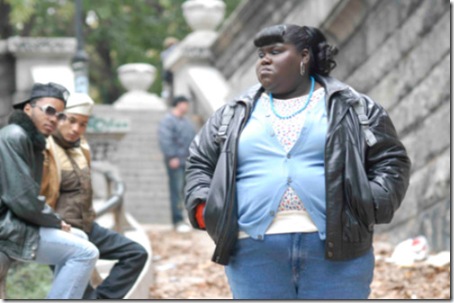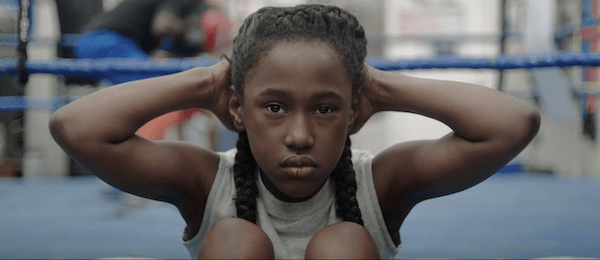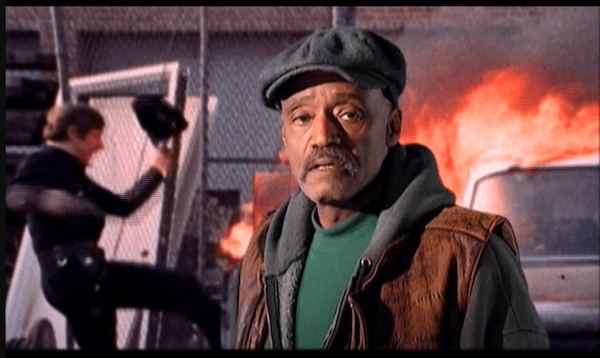Recommendations in Black Cinema
“Black is beautiful. Black isn’t power. Knowledge is power. You can be black as a crow or white as snow but if you don’t know and you ain’t got no dough, you can’t go and that’s for sho’. — Bookstore owner Lewis H. Michaux from Black Power Mixtape
Once the Black Lives Matter demonstrations began, lists of suggested readings, books, and films were omnipresent. George Floyd’s murder has been the tipping point for a population exhausted by pandemic, injustice, racism, militarized police, and a brutal authoritarian leader. Four years ago when a Trump presidency begin to cultivate division and to test our fundamental principles, my family put a Black Lives Matter sign and a Rainbow Peace Flag on our Somerville porch. While not averse to the signs, curious neighbors did ask: “Did something happen?” Of course, racial and legal injustice didn’t begin under this president: black artists have been speaking out and telling stories for well over a hundred years. But in the past few decades there has been a tidal wave of impressive writing. Some of my favorite books: Paul Beatty’s darkly comic The Sellout, Colson Whitehead’s The Underground Railroad, Trevor Noah’s Born a Crime. An amazing explosion on cable TV — Donald Glover’s Atlanta, Kenya Barris’s Black-ish and mockumentary #BlackAF, Issa Rae’s book and cable shows, and Ava DuVernay’s (Selma) miniseries When They See Us among many others.
Black playwrights have been generating trenchant dramas for some time. Over the years I have seen August Wilson’s 10-play Pittsburgh Cycle at the Huntington Theater Company, and a great production of Suzan-Lori Parks’s Topdog/Underdog at the New Rep in 2005 and again at the Huntington Theatre Company. Company One staged productions such as Neighbors and the Brother/Sister plays. These are only a few of the examples of companies producing compelling black theater. The past few years in New York saw terrific off-Broadway productions by Suzan-Lori Parks, Branden Jacobs-Jenkins, Lynn Nottage, Adrienne Kennedy, Dominique Morisseau, Katori Hall, Thomas Bradshaw. Texts by Anna Deavere Smith were revisited, and then there was Jeremy O. Harris’s astonishing Slave Play.
Film is no exception. There was an #OscarsSoWhite controversy in 2016 due to a lack of recognition of films like Creed, Straight Outta Compton, and Beasts of No Nation. That same year gave us several movies worth revisiting, which I wrote about at the end of that year (LINK). The following lists contain dramatic films that entertain, educate, and engender discussion. This list of favorites may be imperfect, or even controversial; but, for me, these films left a lasting impression. Most links go to Amazon Prime and are inexpensive to rent. A list of films, available for free to support Black Lives Matter, can be found on the Film Rejects Site.
MUST-SEE
The Hate U Give – This unfortunately overlooked adaptation from last year of the young adult novel stared Amandla Stenberg as Starr Carter, a teenage girl who grapples with racism, police brutality, and activism after witnessing her black friend murdered by the police. (Amazon Prime, Hulu)

Gabourey Sidibe in scene from Precious.
Precious – Lee Daniels (2009)’s tough film about an abused, overweight, illiterate African-American teen from Harlem (Gabourey Sidibe) who discovers an alternate path in life. Based on the novel by Sapphire. (HBO, Pime)
Fruitvale Station – Ryan Coogler (2013) directs a film based on the true story of Oscar Grant (Michael B. Jordan), a young man shot dead during an altercation with California police. (multiple platforms)
Loving – (2016) Jeff Nichols (one of the few white directors on this list) helmed this quiet, elegant production the story of a mixed race couple, Richard and Mildred Loving, who spent nine years fighting for the right to live as a family in their hometown. Their legal battle led to the famous Loving v. Virginia decision in 1967. (Prime)
Eve’s Bayou – (1997) Kasi Lemmons’s (Harriet) early film with Samuel Jackson is a dramatically charged story of a well-off family in Louisiana’s “colored” community who claims descent from the French aristocrat who founded the town of Eve’s Bayou. (HBO and Prime)
Fences (2016) – Denzel Washington stars in and directs this adaptation of the celebrated August Wilson drama. (Prime)
Moonlight (2016) and If Beale Street Could Talk (2018) – Award-winning modern classics from director Barry Jenkins. (Netflix and multiple platforms)
Queen of Katwe – (2016) A lesser known Mira Nair film based on the true story of a poor Ugandan girl who becomes a chess master. (Prime)
To Sleep With Anger – (1990) Charles Burnett directs Danny Glover as a flawed father in South Central Los Angeles. (Prime)
Birth of a Nation (2016) Nate Parker’s gritty history of the Nat Turner rebellion was overlooked because of a rape accusation against the director. I don’t recall that the charge was proven — and the film is well worth seeing.

Royalty Hightower in The Fits.
The Fits – (2016) Young Royalty Hightower, who is at the center of Anna Rose Holmer’s strange and adorable supernatural coming-of-age story, creeps up on you.
Clemency – (2019) Chinonye Chukwu’s passion project boasts a great performance by Alfre Woodard as prison warden Bernadine Hodge, who experiences, in a very personal way, the cost of instituting the death penalty.
Bamboozled – (2000) Spike Lee’s controversial satire on African-American appropriation is troubling, colorful, and brilliant. I could only find it as a Netflix DVD rental.
Black Girl – Acclaimed novelist Ousmane Sembène’s devastating portrait of a Senegalese servant women in France in 1966. (YouTube)
DOCUMENTARIES
13th – (2016) Ava DuVernay’s unrelenting look at America’s exorbitant and wildly unequal system of incarceration is a rousing battle cry. A must-see film. Netflix is streaming it for free on YouTube.
Hoop Dreams – Steve James’s great 1994 doc follows a group of inner city kids with dreams of joining the NBA.
When We Were Kings – (1996) A riveting look at the 1974 Ali/Foreman “Rumble in the Jungle” fight in Zaire, it is accompanied by a terrific soundtrack. (Prime and Cinemax)
The Heart of the Game – (2005) This inspirational film looks at a girls basketball team (the Roosevelt Roughriders) across six seasons — it is much more than just a sports story.

Melvin Van Peebles in Classified X.
Classified X – (1998) Melvin Van Peebles’s candid and forthright history of black representations in film. (Free on YouTube)
Black Power Mixtape – (2011) This Swedish film takes an uncompromising look at the early history of the Black Power movement. It serves up powerful interviews and archival footage shot between 1967 and 1975. Arts Fuse review
The Murder of Fred Hampton – (1971) An essential investigative study into the killing by the FBI of one the key leaders of the Black Panthers. This expose remains troublingly relevant.
Birth of a Movement – (2017) Local filmmakers Bester Cram and Susan Grey examine civil rights activist William Monroe Trotter’s battle against D.W. Griffith’s notoriously Ku Klux Klan-friendly blockbuster in 1915.
OFF THE RADAR: PERSONAL FAVORITES

Brother from Another Planet – (1984) This early film from independent pioneer John Sayles is a low-budget social satire that stars Joe Morton as a mute alien from outer space who takes the form of a black New Yorker. It is entertainment that also reveals truths about Black life. Note: I contributed to the Mason Daring soundtrack, so I am playing a favorite here.
Psychosymbiotaxiplasm: Take One – (1968) One of my favorite films is a strange blend of nonfiction document and fiction. African American documentarian William Greaves directs a “film in progress” that may very well be an exercise in delusion. The filming puts the crew and actors through hell as they try to figure out if the director (Greaves) is really in control of his production. The proceedings are a metaphor for revolutionary times. Weird and brilliant. (Criterion purchase)
C.S.A.: The Confederate States of America (2004) Kevin Willmot made a pseudo “British documentary” about what America would be like had the South won the Civil War. He uses some archival footage and fake recreations. This is uncomfortable to watch but tells the truth about racism in America. I have used it in the classroom to generate challenging discussions on race and historical fact. Arts Fuse review
— Tim Jackson
Tagged:

